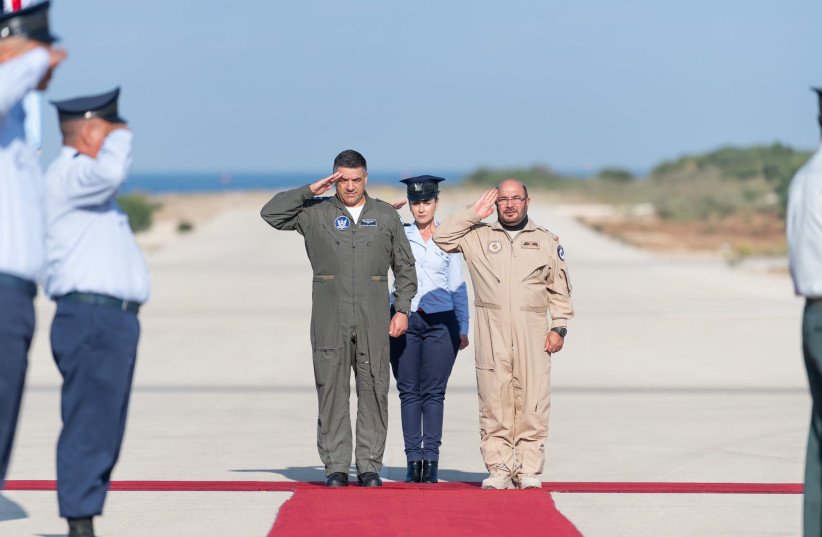A military officer from the United Arab Emirates will attend Israel’s National Defense College (INDC), marking the first time that an officer from an Arab state will attend the prestigious institution.
First reported by KAN Public Broadcaster, the officer, a fighter pilot with the rank of colonel, will study at the college this coming year, the IDF Spokesperson’s Unit confirmed to The Jerusalem Post.
The INDC’s curriculum runs for around 10 months and includes a graduate degree in Political Science from the University of Haifa. It prepares senior IDF staff as well as defense and government officials for senior command positions and brings in several students from overseas every year.
According to The New Arab news site, the officer previously studied at the UAE’s defense college, which follows an American curriculum. He received the approval to study in Israel from the UAE’s president, Sheikh Mohammed bin Zayed.
It’s believed that the officer’s time at the defense college is not only of symbolic importance, but a move that will also increase regional cooperation.
<br>Symbol of regional cooperation

Israel and the UAE normalized relations in 2020 as part of the Abraham Accords and have since exchanged ambassadors and signed dozens of bilateral agreements, and several senior military officials have visited.
Last October, the Commander of the Kingdom’s Air Force Maj.-Gen. Ibrahim Nasser Mohammed al-Alawi landed in Israel as the guest of former Israel Air Force commander Amikam Norkin during the large-scale international Blue Flag aerial exercise, the first one to ever make such a visit.
<br>Regional defense cooperation
Both Israel and the UAE have worked together covertly for years against Iran’s hegemony, and according to foreign reports, have improved their intelligence-sharing and military relations behind closed doors to be prepared for Iranian threats.
Following the normalization agreement signed as part of the Abraham Accords, the UAE’s Minister of State for Defense Affairs Mohammed Al Bowardi and Israel’s Defense Minister Benny Gantz agreed to establish security ties between the two countries.
Both Gantz and IDF Chief of Staff Lt.-Gen. Aviv Kohavi believe that moderate Sunni states such as the United Arab Emirates and Bahrain – and others that have not yet signed agreements with Israel – can deepen their ties, especially in terms of regional security arrangements.
As rocket and drone attacks by Iran have increased, talks have been taking place between Israel and several Gulf states to understand what is most relevant to counter the threats.
According to a recent report by The Wall Street Journal, Kohavi met with senior Arab military leaders in Sharm el-Sheikh in March, including Saudi Arabia’s Chief of Staff Gen. Fayyadh bin Hamed Al Ruwaili, to discuss countering regional threats posed by Iran.
The meeting was reportedly conducted under the auspices of the United States, represented by then-head of Central Command Gen. Frank McKenzie, and brought together the top military commanders from Israel, Saudi Arabia, Qatar, Egypt and Jordan.
The United Arab Emirates and Bahrain also sent officers to the meeting, but not their military chiefs, the report said. Kuwait and Oman didn’t participate.
The WSJ report comes a week after Gantz said that Israel is building a US-sponsored “Middle East Air Defense Alliance” that has already thwarted threats and “that will strengthen the cooperation between Israel and countries in the region.”
